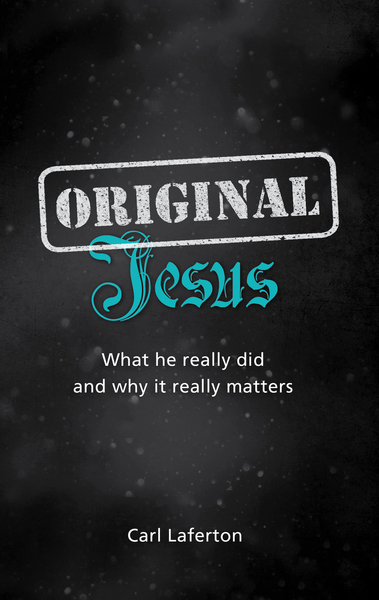
When we think of the Romans, we usually think of sandals and togas, straight roads, and Russell Crowe in Gladiator.
But when Jesus’ countrymen, the Jews, thought of Romans, they thought of oppression, unfair taxes, and random killing. That’s because, throughout Jesus’ life, their land was occupied by a brutal Roman army.
So for the Jews, freedom meant being free of Rome. They dreamed of a freedom fighter who would do the apparently impossible, and release them from the Romans, so that they could live in their land, ruling themselves, in peace.
In our day, many dream of that kind of freedom, too. Millions are being abused by someone else’s government, or their own government.
And many people who already enjoy that kind of freedom want more freedom. Freedom from poverty; or from laws they see as unfair; or from paying too much tax. All of us want to be free from something.
So if Jesus is God, if Jesus loves us, and if Jesus really does make a difference, then surely he’ll bring us the freedom we want.
Which freedom?
That’s what the Jews thought. And that’s why Jesus often asked people to keep quiet about the amazing things he did. He knew that when people heard about his power, they’d assume he had come to overpower the Roman armies. They’d demand that he fulfil their dreams of freedom.
And Jesus knew that they’d be disappointed. Jesus wanted to show them, and he wants to show us, that what he’s most interested in is not that kind of here-and-now political or economic or social freedom. It’s not that he doesn’t care about these things—he does. But he wants to offer a much greater, deeper, more lasting but more elusive freedom.
What is that freedom? It’s the freedom we see Jesus offering to a despairing woman and adesperate man and a dead girl in Luke 8 v 40-56.
The slavery of hopelessness
In first-century Israel, if a woman bled continuously instead of once a month it was not only uncomfortable, it was considered shameful. It brought embarrassment and exclusion.
This woman was helpless. Life had gone terribly wrong, and there was nothing she could do about it.
She was in a hopeless situation—and there’s not much slavery worse than hopelessness. Maybe you know what it’s like to wake up every day with a knot of hopelessness in the pit of your stomach. You have something in common with that woman. Maybe you don’t right now, but there’ve been moments when you’ve felt that way. You can begin to imagine being that woman.
After all, hopelessness knows no class, gender, or age boundaries. You can be a poor invalid or an influential mover-and-shaker; a bleeding woman or a synagogue leader. You can’t wish, work or buy your way out.
Most of us know what hopelessness is, and how it feels. So we’re with the woman as she comes quietly up behind Jesus.
And she’s healed. He gives her freedom to be herself, to live and know joy, and look forward. Jesus gives her back her life. He frees her from hopelessness.
It’s a wonderful moment.
Except it can’t last. There’s something worse than hopelessness, which traps us even more securely. Death.
The slavery of death
Death is the greatest trap of all. We spend all of our lives being drawn towards it. It takes away all we’ve achieved and everything we’ve accumulated. Death happens; and no politician, president or prince can free us from its grasp.
Except one. To Jesus, giving life to a dead person is like waking a sleeping person. That’s what he means when he says: “She is not dead but asleep”. Jesus can override the inevitability of death. He can give us life beyond death.
It’s easy to think he’s joking, or mad. It’s easy to look at the finality of death and think that’s one thing we’ll never be free of. That’s what the mourners were thinking as they “laughed at him”. What happened next? Jesus took a very dead girl by the hand, and she became very alive.
Jesus gives her back her life. He frees her from death.
The freedom of the kingdom
As we watch this woman given hope, and this girl given life, Jesus is giving us a glimpse of real freedom: the freedom of life in his kingdom.
God’s plan, ever since he made the world, is one day to have a kingdom in the world which stretches around the world. And that kingdom will be a place of total freedom from the things that really oppress us: fear, evil, oppression, regret, illness, and even death.
It’s a perfect place. God sets the border controls, and he says anything imperfect will not enter. His kingdom will be a place of complete satisfaction with life and security in life. The hope after hopelessness that we glimpse as this woman is healed, and the life after death that we glimpse as this girl is raised, will one day come fully, completely, for ever.
It’s like a visual slogan: Enjoy the freedom of kingdom life.
This is the life we would all love. In many ways, it’s the life we’re all trying to build here and now, enjoying brief glimmers of it when we laugh, play, love, achieve, succeed.
As God—as the King of that kingdom—Jesus came to offer this world order. Original Jesus comes to free us from all hopelessness, and even from death, by inviting us into his kingdom. He says: Enjoy the freedom of kingdom life.
This article is an extract from Original Jesus: Who he really is and why he really matters.